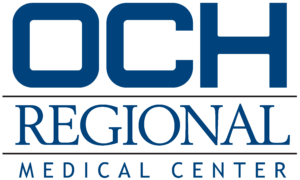MSU Researchers Partner with OCH to Reduce Hospital Readmissions with Freezer Meals
Mississippi State University and OCH Regional Medical Center are working together to find out if freezer meals could help reduce hospital readmission rates. The purpose of the study, “Meals Enhancing Nutrition after Discharge” or “MEND”, evaluates the efficacy and feasibility of a frozen meal program designed to improve nutritional intake and reduce hospital readmissions for older adults who have been recently discharged from the hospital and are at a higher risk for poor nutritional status. While some might find it strange and even a bit far-reaching to connect freezer meals with fewer hospital readmissions, MSU researcher Dr. David R. Buys and OCH Registered Dietitian Nicky Yeatman, RD, LD, CDE, believe it’s worth a try.
“The most critical time after discharge are those first few days back at home,” said Dr. Buys. “Research shows when older adults go home from the hospital, many are living on a fixed income and having to make the decision to either get their prescriptions filled or purchase food. These meals are intended to bridge the gap from the hospital to the later phase of recovery,” explained Dr. Buys.
The program begins with OCH Registered Dietitians identifying patients who fit the criteria for the study, and those patients are given the opportunity to voluntarily participate or opt out. Participants are then contacted by a researcher from the university who conducts further assessments at the bedside and continues to track the patient’s progress over 45 days. A total of 24 older adults will be selected for the study, with half of the group receiving standard of care nutrition education and the other half receiving the education plus 10 frozen meals provided by Morrison Health Care.
“In the first two days of this study, Nicky called with two patients who were willing to participate,” said Dr. Buys. “OCH is a very friendly environment and logistically, the employees there have made it very easy to conduct this study. We could’ve partnered with a larger hospital, but we wanted to work with our hometown hospital.”
“Being involved in this study is a great opportunity not just for our hospital but also for our patients,” said Yeatman. “So often, this population of people with medical conditions return home from the hospital without much family support, and they don’t feel like cooking a healthy meal so they eat canned soups and meats with a high sodium content. These frozen meals are not only nutritionally balanced and low in fat and sodium, but they also taste good so patients will actually eat them.”
This program may not only prove beneficial for patients, but it could also keep hospitals from losing reimbursement. In October 2012, the Centers for Medicare and Medicaid Services began penalizing hospitals with excessive readmissions by reducing Medicare payments. Excess readmissions are measured by dividing a hospital’s number of “predicted” 30-day readmissions for heart attack, heart failure, pneumonia, hip/knee replacement, and COPD by the number that would be “expected,” based on an average hospital with similar patients. While OCH Regional Medical Center’s readmission rates are lower than other hospitals in the area, Yeatman said it’s important to identify and address contributing factors for readmissions.
“Studies show poor nutrition is a significant risk of hospital readmissions within 30 days of discharge, so we’re hoping this program can intervene and help decrease those numbers. If this study proves beneficial for patients and lowers readmission rates, hospitals may be willing to invest in this type of frozen meal program,” explained Yeatman.
Dr. Buys explained this study is considered a feasibility trial and services by Morrison and OCH have been provided “in kind.” He said if this study proves to be successful, further research will be conducted.
“I wanted to find out if this program is even feasible before requesting the funds for this type of project at a larger scale,” said Dr. Buys. “Sending patients home with meals is not a magic bullet, but it does address one of a cadre of issues. With hospital stays being shorter than ever before, our goal is to send patients home with the resources they need to make a full recovery.”
-END-
